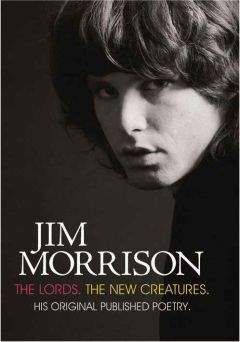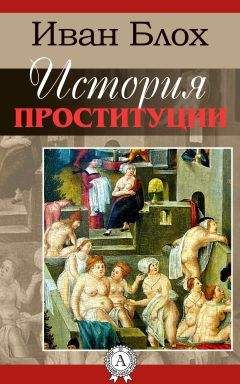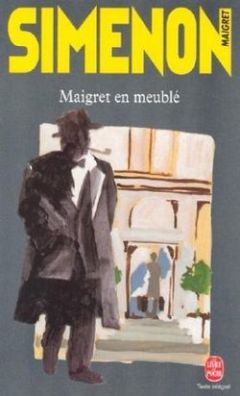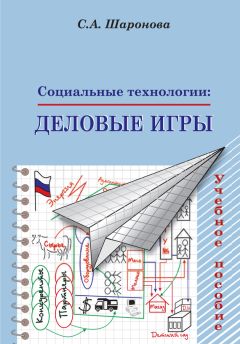The world becomes an apparently infinite, yet
possibly finite, card game. Image combinations,
permutations, comprise the world game.
A mild possession, devoid of risk, at bottom sterile. With an image there is no
attendant danger.
Muybridge derived his animal subjects from the Philadelphia Zoological
Garden, male performers from the University. The women were professional
artists' models, also actresses and dancers, parading nude before the 48
cameras.
Films are collections of dead pictures which are
given artificial insemination.
Films spectators are quiet vampires.
Cinema is most totalitarian of the arts. All energy and sensation is sucked
up into the skull, a cerebral erection, skull bloated with blood. Caligula
wished a single neck for all his subjects that he could behead a kingdom
with one blow. Cinema is this transforming agent. The body exists for the
sake of the eyes; it becomes a dry stalk to support these two soft insatiable
jewels.
Film confers a kind of spurious eternity.
Each film depends upon all the others and drives you on to others. Cinema
was a novelty, a scientific toy, until a sufficient body of works had been
amassed, enough to create an intermittent other world, a powerful, infinite
mythology to be dipped into at will.
Films have an illusion of timelessness fostered by their regular, indomitable
appearance.
The appeal of cinema lies in the fear of death.
The modem East creates the greatest body of films. Cinema is a new form of
an ancient tradition — the shadow play. Even their theater is an imitation
of it. Bom in India or China, the shadow show was aligned with religious
ritual, linked with celebrations which centered around cremation of the
dead.
It is wrong to assume, as some have done, that cinema belongs to women.
Cinema is created by men for the consolation of men.
The shadow plays originally were restricted to male audiences. Men could
view these dream shows from either side of the screen. When women later
began to be admitted, they were allowed to attend only to shadows.
Male genitals are small faces
forming trinities of thieves
and Christs
Fathers, sons, and ghosts.
A nose hangs over a wall
and two half eyes, sad eyes,
mute and handless, multiply
an endless round of victories.
These dry and secret triumphs, fought
in stalls and stamped in prisons,
glorify our walls
and scorch our vision.
A horror of empty spaces
propagates this seal on private places.
Kynaston's Bride
may not appear
but the odor of her flesh
is never very far.
A drunken crowd knocked over the apparatus, and Mayhew's showman,
exhibiting at Islington Green, burned up, with his mate, inside.
In 1832, Gropius was astounding Paris with his Pleorama. The audience was
transformed into the crew aboard a ship engaged in battle. Fire, screaming,
sailors, drowning.
Robert Baker, an Edinburgh artist, while in jail for debt, was struck by the
effect of light shining through the bars of his cell through a letter he was
reading, and out of this perception he invented the first Panorama,
a concave, transparent picture view of the city.
This invention was soon replaced by the Diorama, which added the illusion
of movement by shifting the room. Also sounds and novel lighting effects.
Daguerre's London Diorama still stands in Regent's Park, a rare survival,
since these shows depended always on effects of artificial light, produced
by lamps or gas jets, and nearly always ended in fire.
Phantasmagoria, magic lantern shows, spectacles without substance. They
achieved complete sensory experiences through noise, incense, lightning,
water. There may be a time when we'll attend Weather Theaters to recall the
sensation of rain.
Cinema has evolved in two paths.
One is spectacle. Like the Phantasmagoria, its goal is the creation of a total
substitute sensory world.
The other is peep show, which claims for its realm both the erotic and the
untampered observance of real life, and imitates the keyhole or voyeur's
window without need of color, noise, grandeur.
Cinema discovers its fondest affinities, not with painting, literature, or theater,
but with the popular diversions — comics, chess, French and Tarot decks,
magazines, and tattooing.
Cinema derives not from painting, literature, sculpture, theater, but from
ancient popular wizardry. It is the contemporary manifestation of an evolving
history of shadows, a delight in pictures that move, a belief in magic. Its
lineage is entwined from the earliest beginning with Priests and sorcery, a
summoning of phantoms. With, at first, only slight aid of the mirror and fire,
men called up dark and secret visits from regions in the buried mind. In these
seances, shades are spirits which ward off evil.
The spectator is a dying animal.
Invoke, palliate, drive away the Dead. Nightly.
Through ventriloquism, gestures, play with objects, and all rare variations of
the body in space, the shaman signaled his «trip» to an audience which
shared the journey.
In the seance, the shaman led. A sensuous panic, deliberately evoked through
drugs, chants, dancing, hurls the shaman into trance. Changed voice,
convulsive movement. He acts like a madman. These professional hysterics,
chosen precisely for their psychotic leaning, were once esteemed. They
mediated between man and spirit-world. Their mental travels formed the crux
of the religious life of the tribe.
Principle of seance: to cure illness. A mood might overtake a people burdened
by historical events or dying in a bad landscape. They seek deliverance from
doom, death, dread. Seek possession, the visit of gods and powers,
a rewinning of the life source from demon possessors. The cure is culled
from ecstasy. Cure illness or prevent its visit, revive the sick, and regain
stolen, soul.
It is wrong to assume that art needs the spectator in order to be. The film
runs on without any eyes. The spectator cannot exist without it. It insures
his existence.
The happening/the event in which ether is introduced into a roomful of people
through air vents makes the chemical an actor. Its agent, or injector, is an
artist-showman who creates a performance to witness himself. The people
consider themselves audience, while they perform for each other, and the gas
acts out poems of its own through the medium of the human body. This
approaches the psychology of the orgy while remaining in the realm of the
Game and its infinite permutations.
The aim of the happening is to cure boredom, wash the eyes, make childlike
reconnections with the stream of life. Its lowest, widest aim is for purgation of
perception. The happening attempts to engage all the senses, the total
organism, and achieve total response in the face of traditional arts which
focus on narrower inlets of sensation.
Multimedias are invariably sad comedies. They work as a kind of colorful
group therapy, a woeful mating of actors and viewers, a mutual semimastur-
bation. The performers seem to need their audience and the spectators — the
spectators would find these same mild titillations in a freak show or Fun Fair
and fancier, more complete amusements in a Mexican cathouse.
Novices, we watch the moves of silkworms who
excite their bodies in moist leaves and weave wet
nests of hair and skin.
This is a model of our liquid resting world
dissolving bone and melting marrow
opening pores as wide as windows.
The «stranger» was sensed as greatest menace in ancient communities.
Metamorphose. An object is cut off from its name, habits, associations.
Detached, it becomes only the thing, in and of itself. When this disintegration
into pure existence is at last achieved, the object is free to become endlessly
anything.
The subject says «I see first lots of things which dance… then everything
becomes gradually connected».
Objects as they exist in time the clean eye and camera give us. Not falsified
by «seeing».
When there are as yet no objects.
Early film-makers, who — like the alchemists — delighted in a willful obscuri-
ty about their craft, in order to withhold their skills from profane onlookers.
Separate, purify, reunite. The formula of Ars Magna, and its heir, the
cinema.
The camera is androgynous machine, a kind of mechanical hermaphrodite.
In his retort the alchemist repeats the work of Nature.
Few would defend a small view of Alchemy as «Mother of Chemistry», and
confuse its true goal with those external metal arts. Alchemy is an erotic
science, involved in buried aspects of reality, aimed at purifying and
transforming all being and matter. Not to suggest that material operations are
ever abandoned. The adept holds to both the mystical and physical work.
The alchemists detect in the sexual activity of man a correspondence with the
world's creation, with the growth of plants, and with mineral formations.
When they see the union of rain and earth, they see it in an erotic sense, as
copulation. And this extends to all natural realms of matter. For they can
picture love affairs of chemicals and stars, a romance of stones, or the fertility
of fire.
Strange, fertile correspondences the alchemists sensed in unlikely orders of
being. Between men and planets, plants and gestures, words and weather.
These disturbing connections: an infant's cry and the stroke of silk; the whorl
of an ear and an appearance of dogs in the yard; a woman's head lowered in
sleep and the morning dance of cannibals; these are conjunctions which
transcend the sterile signal of any «willed» montage. These juxtapositions of
objects, sounds, actions, colors, weapons, wounds, and odors shine in an
unheard — of way, impossible ways.
Film is nothing when not an illumination of this chain of being which makes
a needle poised in flesh call up explosions in a foreign capital.
Cinema returns us to anima, religion of matter, which gives each thing its
special divinity and sees gods in all things and beings.
Cinema, heir of alchemy, last of an erotic science.
Surround Emperor of Body.
Bali Bali dancers
Will not break my temple.
Explorers
Suck eyes into the head.
The rosy body cross
secret in flow
controls its flow.
Wrestlers
in body weights dance
and music, mimesis, body.
Swimmers
entertain embryo
sweet dangerous thrust flow.
The Lords. Events take place beyond our knowledge or control. Our lives are
lived for us. We can only try to enslave others. But gradually, special
perceptions are being developed. The idea of the «Lords» is beginning to form
in some minds. We should enlist them into bands of perceivers to tour the
labyrinth during their mysterious nocturnal appearances. The Lords have
secret entrances, and they know disguises. But they give themselves away in
minor ways. Too much glint of light in the eye. A wrong gesture. Too long
and curious a glance.
The Lords appease us with images. They give us books, concerts, galleries,
shows, cinemas. Especially the cinemas. Through art they confuse us and
blind us to our enslavement. Art adorns our prison walls, keeps us silent and
diverted and indifferent.
Dull lions prone on a watery beach.
The universe kneels at the swamp
to curiously eye its own raw
postures of decay
in the mirror or human consciousness.
Absent and peopled mirror, absorbent
passive to whatever visits
and retains its interest.
Door of passage to the other side,
the soul frees itself in stride.
Turn mirrors to the wall
in the house of the new dead.
I
Snakeskin jacket
Indian eyes
Brilliant hair
He moves in disturbed
Nile insect
Air
* * *
You parade thru the soft summer
We watch your eager rifle decay
Your wilderness
Your teeming emptiness
Pale forest on verge of light
decline.
More of your miracles
More of your magic arms
* * *
Bitter grazing in sick pastures
Animal sadness the daybed
Whipping.
Iron curtains pried open.
The elaborate sun implies
dust, knives, voices.
Call out of the Wilderness
Call out of fever, receiving
the wet dreams of an Aztec King.
* * *
The banks are high and overgrown
rich w/warm green danger.
Unlock the canals.
Punish our sister's sweet playmate distress.
Do you want us that way w/the rest?
Do you adore us?
When you return will you
still want to play w/us?
* * *
Fall down.




